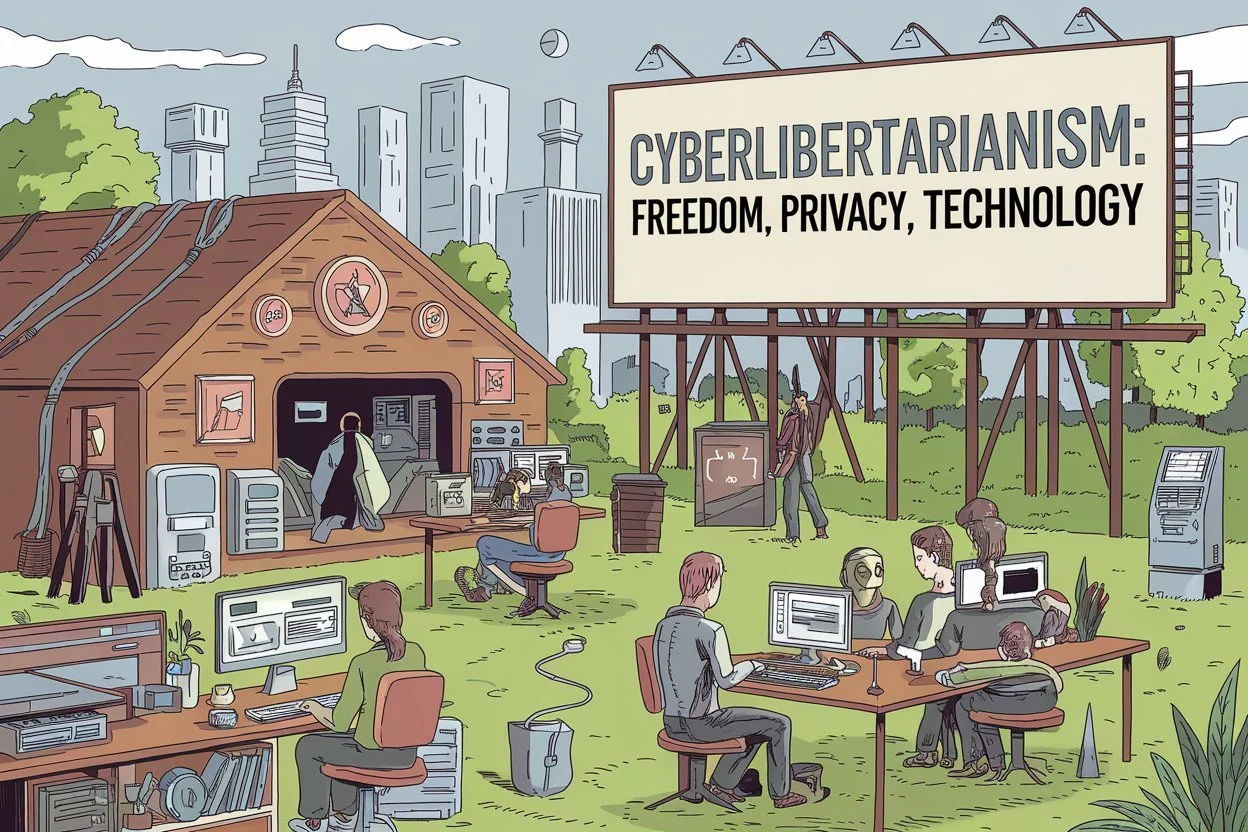Cyberlibertarianism: The Intersection of Technology and Libertarian Ideals
Cyberlibertarianism: The Intersection of Technology and Libertarian Ideals
Cyberlibertarianism is a political and philosophical ideology that emphasizes the role of digital technology in advancing individual freedom, autonomy, and minimal government intervention. Emerging in the 1990s alongside the rapid expansion of the internet, cyberlibertarianism combines principles of classical libertarianism with the transformative potential of digital networks.
This article explores the roots of cyberlibertarianism, its core beliefs, its influence on the development of the internet, and the criticisms it faces in today's complex digital landscape.
Origins of Cyberlibertarianism
The term "cyberlibertarianism" gained prominence during the early days of the internet when technologists, entrepreneurs, and visionaries began imagining a digital space free from traditional government oversight. Influenced by libertarian thinkers like Ayn Rand and Friedrich Hayek, cyberlibertarians viewed the internet as a decentralized realm where individuals could engage in free expression, innovation, and commerce without interference.
Notable figures associated with the movement include:
John Perry Barlow, co-founder of the Electronic Frontier Foundation (EFF), whose 1996 essay A Declaration of the Independence of Cyberspace encapsulated the vision of an internet free from government control.
Timothy C. May, a founding figure in the cypherpunk movement, who advocated for privacy, encryption, and the use of technology to circumvent state control.
Core Principles of Cyberlibertarianism
Decentralization
Cyberlibertarians champion decentralized systems like peer-to-peer networks and blockchain technology. These innovations align with the belief that power should be distributed and not concentrated in government or corporate hands.Freedom of Expression
A cornerstone of the ideology is the idea that the internet should be a platform for unrestricted speech, fostering open dialogue without censorship.Market-driven Innovation
Cyberlibertarians favor minimal regulation, arguing that free markets are better suited to drive technological progress and economic growth.Privacy and Encryption
The movement strongly supports tools like encryption to protect individual privacy and resist surveillance by governments and corporations.Opposition to Government Regulation
Advocates argue that governmental attempts to regulate the internet stifle innovation and threaten the freedoms that digital technology enables.
Cyberlibertarianism in Action
The principles of cyberlibertarianism have shaped numerous technological developments and movements, including:
Cryptocurrencies
Bitcoin and other blockchain-based systems epitomize cyberlibertarian ideals by providing decentralized financial systems independent of central banks and governments.The Cypherpunk Movement
This movement laid the groundwork for many privacy-preserving technologies, such as encrypted email, virtual private networks (VPNs), and anonymous browsing tools like Tor.Open Source Software
The philosophy of free and open-source software (e.g., Linux, Mozilla) reflects the cyberlibertarian commitment to decentralization and collaborative innovation.
Criticisms of Cyberlibertarianism
Despite its contributions to technological progress, cyberlibertarianism has faced significant criticism:
Naive Optimism
Critics argue that cyberlibertarianism underestimates the challenges posed by bad actors, such as cybercriminals and disinformation campaigns, which can thrive in unregulated digital spaces.Ignoring Inequalities
Detractors claim that the ideology overlooks systemic inequalities, assuming that everyone has equal access to technology and the skills to benefit from it.Corporate Power
While opposing government regulation, cyberlibertarians often fail to address the concentration of power in large tech corporations, which can stifle competition and limit user freedom.Erosion of Social Responsibility
The focus on individual autonomy can lead to a lack of accountability for the societal impacts of technology, such as environmental damage or job displacement due to automation.
Cyberlibertarianism in a Changing Digital World
In recent years, the internet has evolved into a highly commercialized and regulated space, challenging the original vision of cyberlibertarianism. Governments worldwide have enacted laws to govern data privacy, combat online extremism, and regulate tech monopolies. Meanwhile, debates about the balance between freedom and regulation continue to dominate discussions about the future of the internet.
Nevertheless, the influence of cyberlibertarian ideals remains evident in ongoing efforts to create decentralized platforms, protect digital privacy, and resist censorship.
Conclusion
Cyberlibertarianism represents a bold vision of a free and open digital world, shaped by the belief that technology can empower individuals and limit the reach of traditional authorities. While its principles have inspired groundbreaking innovations, the ideology must grapple with the realities of inequality, corporate power, and the need for some level of governance in the digital age.
As we navigate the challenges and opportunities of the internet's next chapter, the legacy of cyberlibertarianism continues to spark debate about the role of technology in shaping a freer society.
